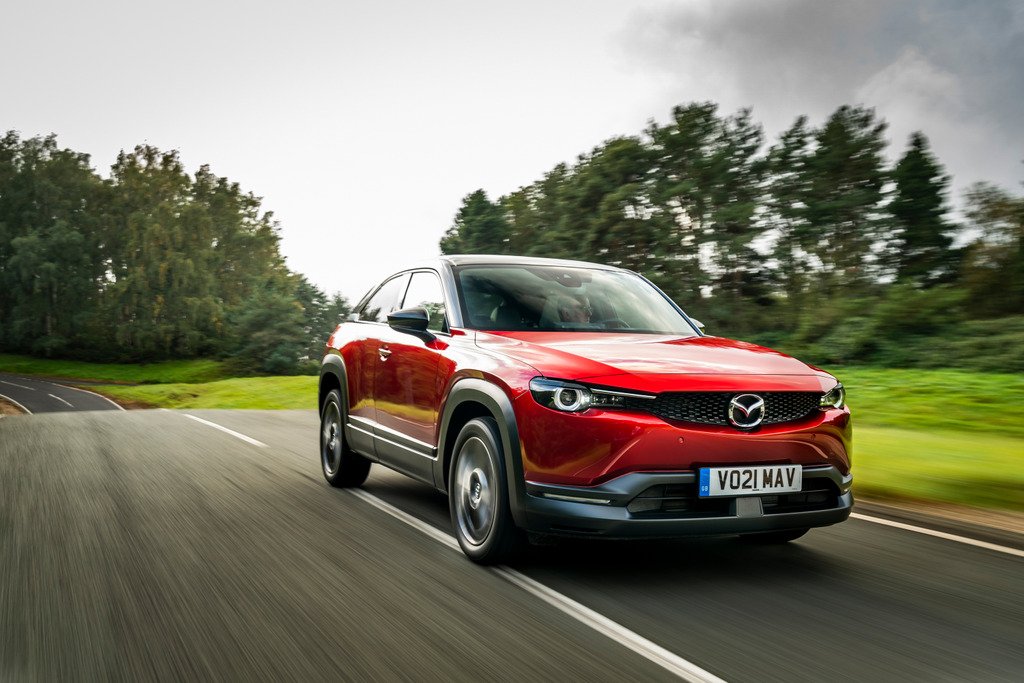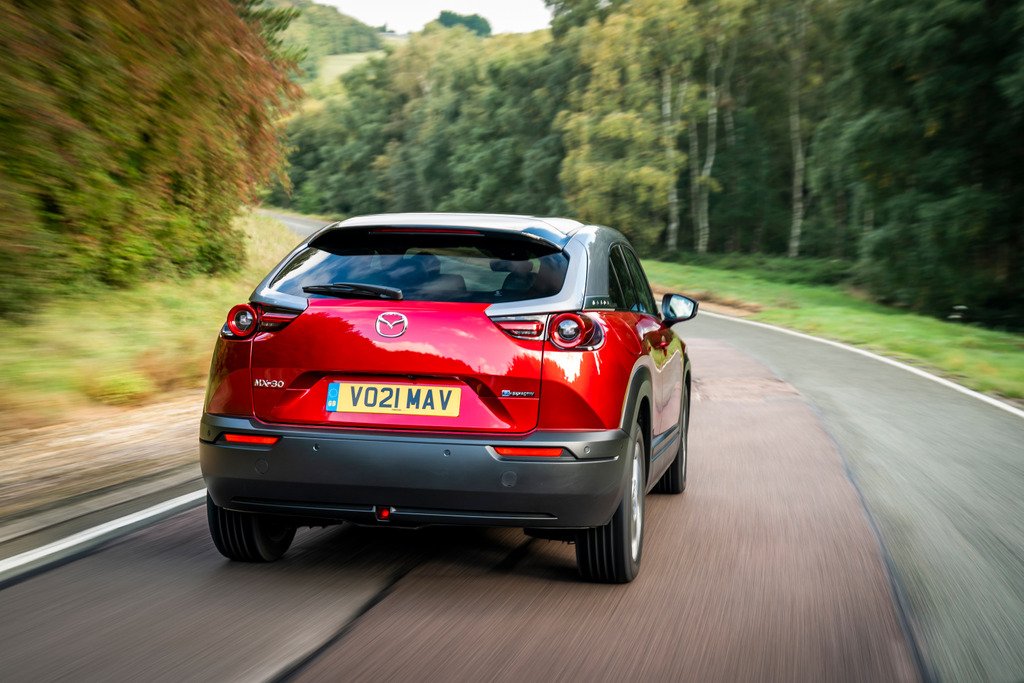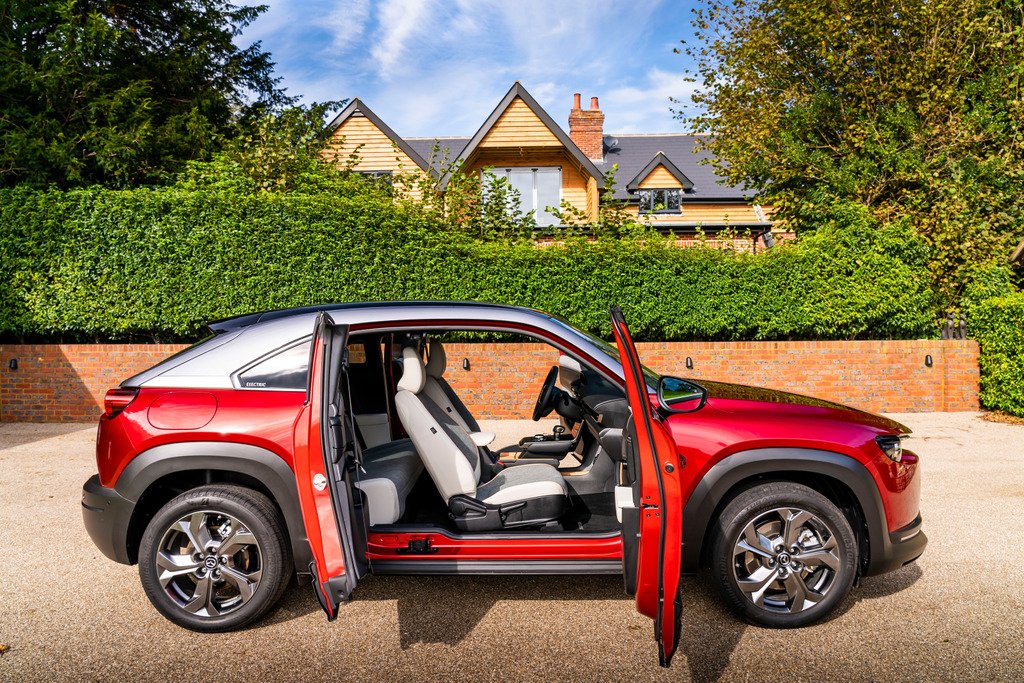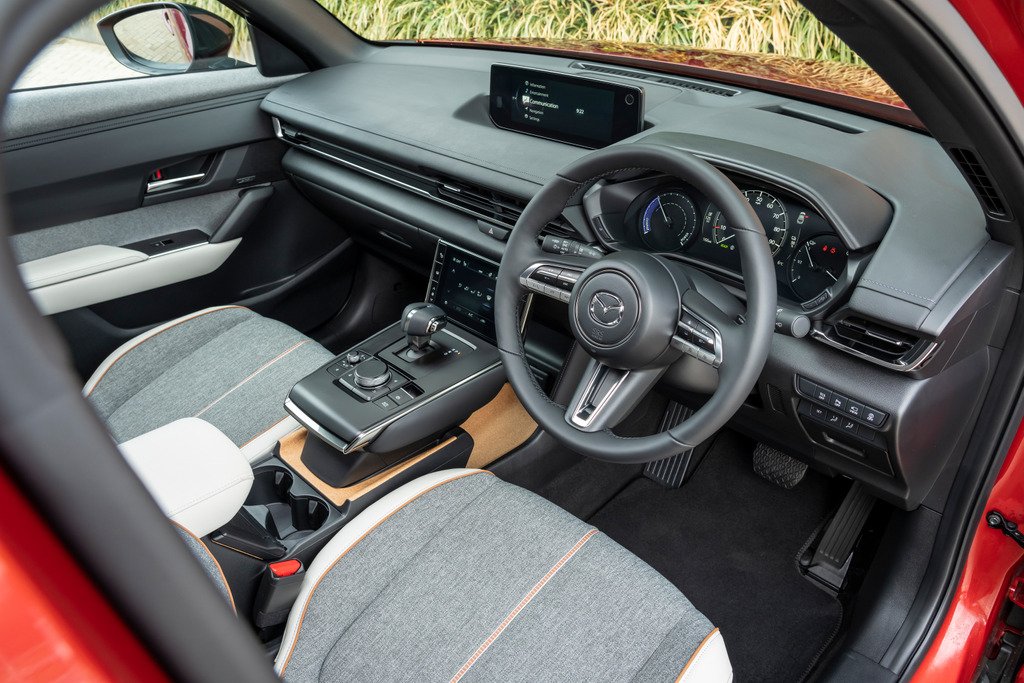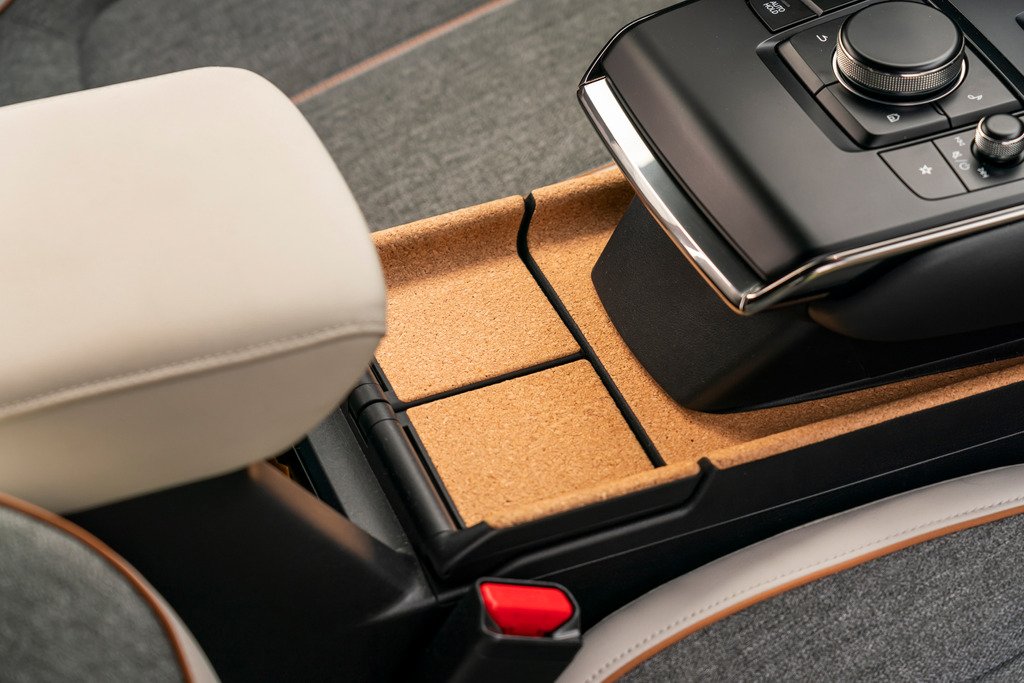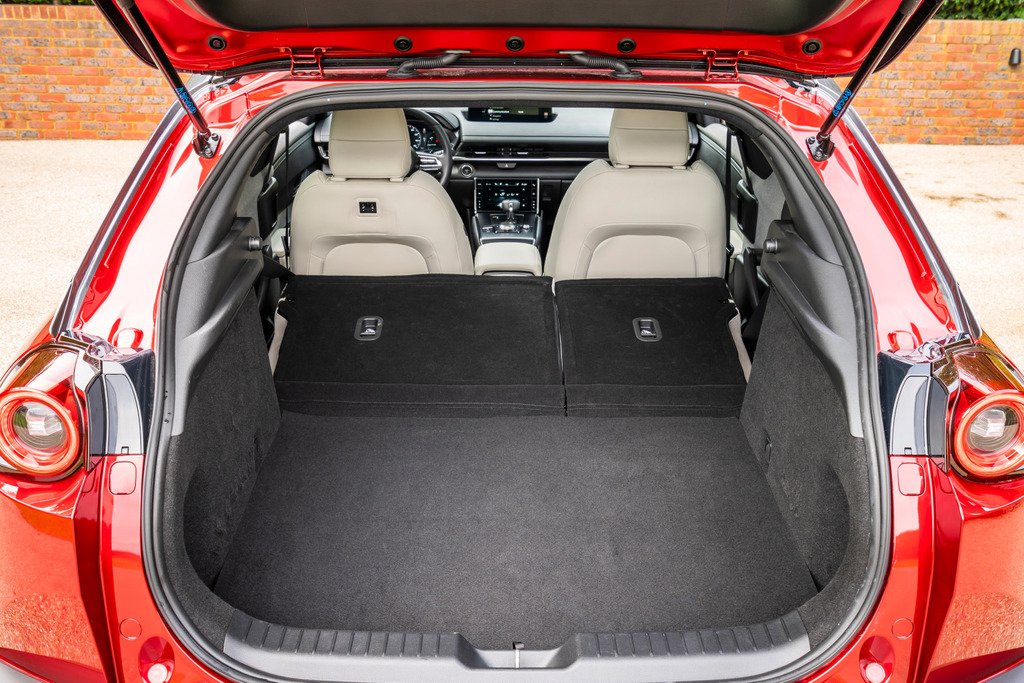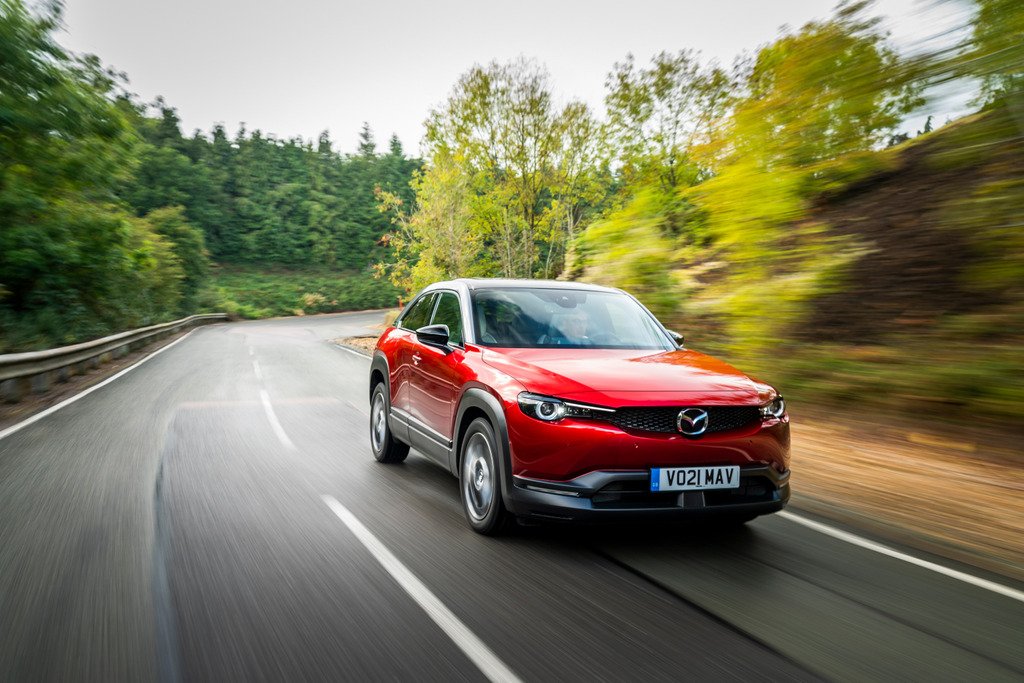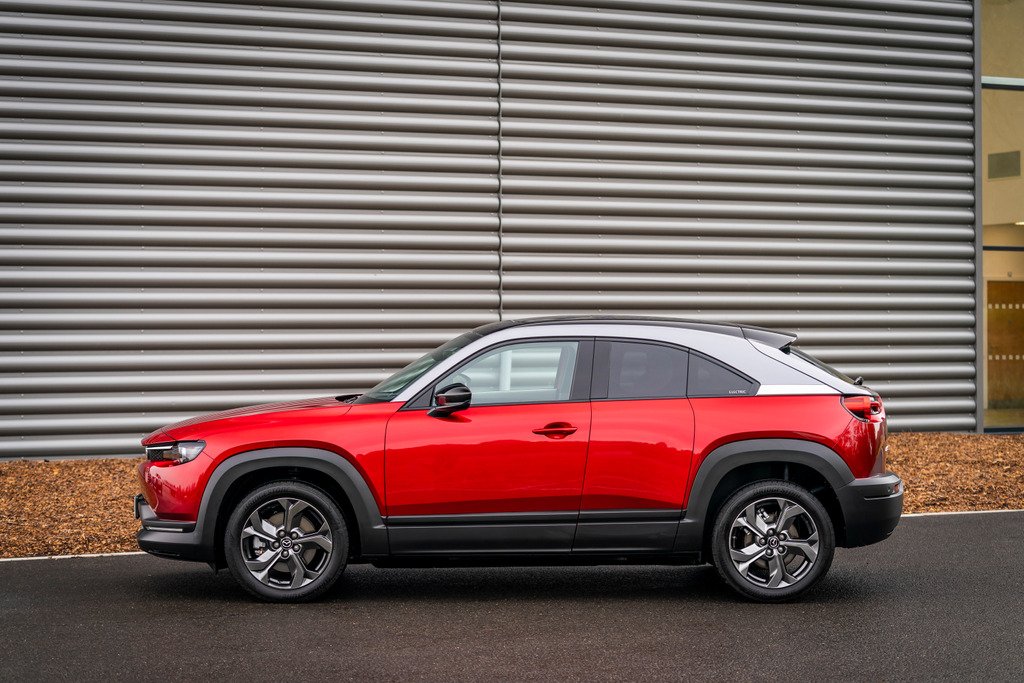Massimo Pini drives Mazda’s first-ever battery electric vehicle – the MX-30 – to see how it measures up in the burgeoning EV sector.
Mazda has decided to plough its own furrow with its first electric vehicle, making a case for a compromised range from a smaller battery pack that results in a lighter car and therefore a more engaging drive.
They also argue that the right sizing of the battery reduces the MX-30’s environmental impact, as not only is it using less raw materials but it will also not be lugging around extra battery capacity that isn’t really needed, particularly since Mazda’s own research reveals that its customers drive an average of just 26 miles a day.
But what does this mean in the real world? Officially, Mazda claims a range of 124 miles, which pitches the MX-30 in Honda e and electric MINI territory; both smaller cars that are often chosen as second cars in households where an alternative vehicle is available for longer journeys – since our national charging infrastructure still has some way to go to convince the masses to go all-electric.
Of course, the 124-mile range is an optimum figure and, based on what we’ve seen from other electric vehicles, most drivers shouldn’t expect much more than 100 miles, so the question is: Is the compromise worth it?
We’ll come to that, but first, let’s take a closer look at the design on the MX-30. The exterior is an interesting blend of SUV and coupé. The ride height is slightly raised but the effect is increased by the grey plastic lower body panels that extend smoothly into pronounced wheel arch surrounds, while the roofline is more svelte, with shallow side windows, a chunky C-pillar and a fastback rear.
I found the overall effect to be discreetly rugged and handsome. Where some manufacturers have sought to make their cars ‘look’ like electric cars, I don’t see that here. There are, however, many intriguing design details to enjoy on the Mazda MX-30. The rear lamp units, for example, wouldn’t look out of place on an Italian supercar. Hints of Ferrari, perhaps?
But the most distinctive feature is something we haven’t seen on a Mazda since the RX-8 – the rear-hinged freestyle doors. These open only once the front doors are also open and, combined with the lack of a B-pillar, create significantly improved access to the rear seats when compared to the hassle of clambering into or out of any regular two-door coupé.
The interior is up to Mazda’s usual very good standards but also brings in some trendy, new features – including vegan-friendly materials. Paying homage to the company’s heritage as a cork manufacturer (not a lot of people know that), the new MX-30 features the material to great effect on parts of the centre console and door grips, while recycled plastic bottles are moulded with fibre for the upholstery fabrics.
All models are well equipped and include an 8.8-inch colour display on the top of the dash, a separate 7-inch screen for ventilation controls plus high-end features like a head-up display. There’s also a full suite of safety kit and the Mazda Connect set-up supports both Android Auto and Apple CarPlay with smartphone integration.
Behind the wheel, it seems that Mazda’s case for smaller batteries does indeed stand up as the MX-30 feels light, agile and engaging. It accelerates smoothly and feels refined and composed, although the steering is a little on the light side. As for performance, it takes 9.7 seconds to get to 60mph from a standstill and the top speed is a fairly conservative 87mph.
There are five levels of brake regeneration, controlled by paddle shifters on either side of the steering wheel so every driver should be able to find one to suit their driving style.
Recharging up to 80 per cent capacity can be completed in 36 minutes from a rapid charger while a full home recharge takes around five hours.
Taking off the £3,000 Government grant for low emission cars, the Mazda starts at £25,545, representing excellent value. A limited number of First Edition models are available priced from £27,495, otherwise the four-model range will top out from £29,845 for a high spec GT Sport Tech variant.
The predicted bestseller, from the middle of the line-up, is the Sport Lux (as tested) at £27,545 and every buyer ordering an MX-30 by March 31 will get a free home-charger wall box.
If you can accept the driving range on offer, then the Mazda MX-30’s blend of style, tech, driver enjoyment and value for money make it a truly compelling proposition.

